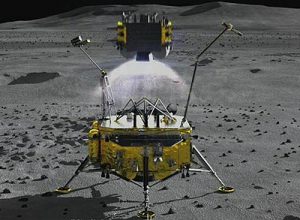As Joe Biden gets ready for his inauguration as the 46th U.S. president and the Trump administration packs its bags, the world continues to deal with its own history and future. Business leaders need to keep up to date on the issues that can affect them, their companies, and their extended supply chains. A partial list of such issues is as follows:
- Russia

As I write this post the news from Moscow is that Alexei Navalny has been detained as he returned from Berlin. Navalny has spent the last five months in Germany after being apparently poisoned with a military-grade bioweapon. Building on its success in propping up the regime of Bashar al-Assad, Russia is engaging across the Middle East and the war in Eastern Ukraine has not been resolved although there is currently an imperfect truce in place. On its side, the United States has charged 6 Russian officers with the massive cyber attack on U.S. government computers that was discovered last month although Russia has denied its involvement. Additional sanctions against Russia seem to be a real possibility and if that were to happen, Russia would likely impose counter-sanctions disturbing trade even further.
- China

Despite a recent surge in cases, China claims it has defeated SARS-CoV-2 and is back to business a usual. It is also continuing its one belt, one road initiative, and the leadership of an alternative economic arrangement with the countries of East Asia. China also successfully sent its Chang’e-5 probe to the dark side of the moon and back, collecting rock specimens. The issues of sovereignty in the East China Sea and the South China Sea continue to fester and China has made progress on improving its relations with countries in the region such as the Philippines. China is not only a complex place to do business for western firms but will continue to support its own national champions as they expand around the world and strive for leadership positions in a number of specific industries such as telecommunications, infrastructure, and energy-
- North Korea
After the collapse of the discussions between Donald Trump and Kim Jong-un, North Korea has continued to build up its military and now has as many as 60 nuclear weapons and the world’s fourth-largest army according to the Council of Foreign Relations. South Korea is the world’s 9th largest economy and its capital, Seoul, is less than 60 KM (35 Miles) away.
- Middle East
One apparently positive development is the mutual recognition between Israel, the UAE, Bahrain, and Morroco that was done with help from the Trump administration. On a regional level, the war in Yemen is far from resolved, and Iraq, Syria, and Lebanon all suffer from deep divisions, armed regional groups, and are far from stable. Many analysts see a complex struggle for leadership in the region going on between Iran, Saudi Arabia, and Turkey. The region offers incredible opportunities but the risks also need to be evaluated.
- Venezuela

The Maduro regime has brought poverty, murder, and mayhem to Venezuela despite the efforts of Juan Guaido and his colleague Leopold Lopez, who finally managed to make it to safety in Madrid. The continuing collapse of the country is not only a catastrophe for its people but has also swamped its neighbors with refugees and other problems. Most of the international companies which had been active in Venezuela have left the country over the years. Nevertheless, it offers a cautionary tale about what can happen when a country’s politics spin out of control.
On a personal note, I look forward to the Biden – Harris administration and have great confidence that the incoming Secretary of State, Anthony Blinken, will be able to mobilize American diplomacy to help improve the global situation. Nevertheless, these, and other issues around the world obey their own logic and will take many years to sort themselves out. as I have written on many occasions, the international business community needs to be fully aware of these issues and how they may impact the business landscape.

